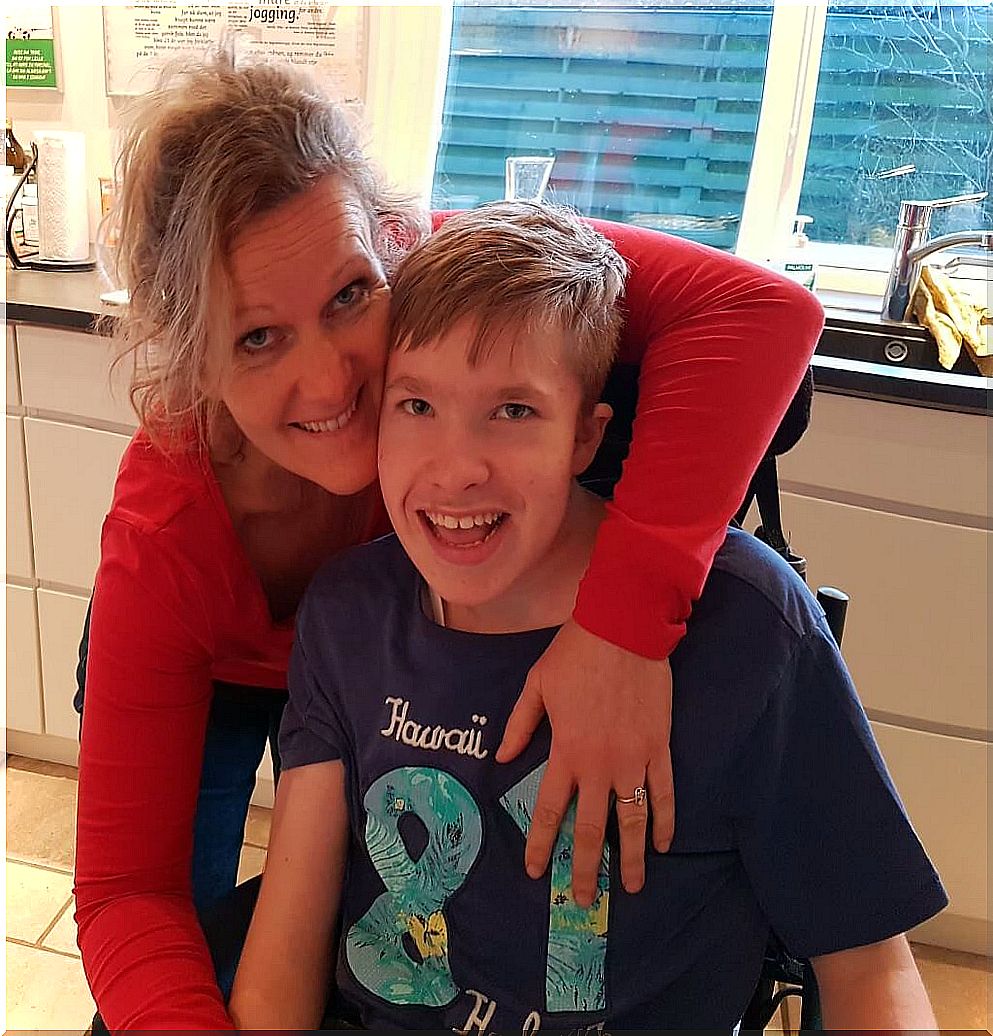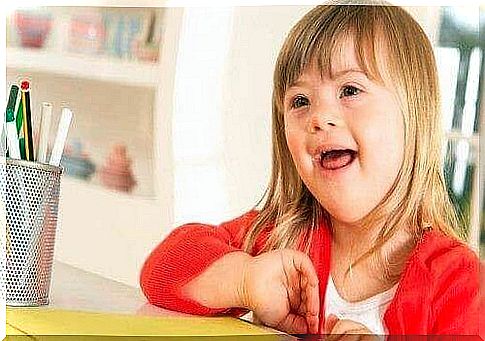How Do People With An Intellectual Disability Grieve?

A child with an intellectual disability affects the whole family. As the child grows up, it becomes more and more important to get help and support. However, most families are not prepared to deal with everything that comes with having a child with special needs.

Stages and types of grief in people with intellectual disabilities
Most authors agree that the grieving process has several stages. This process is the same for people with an intellectual disability. It begins with the initial impact. It ends either with recovery, or with grief becoming chronic.
We can divide this process into four stages:
- Initial effect: Confusion, shock. The first symptoms are denial, mistrust and panic.
- Anger and guilt : Thoughts about self-punishment, anger, the attempt to place a guilt, as well as abandonment.
- The world is turned upside down, desperation, withdrawing. Reluctance to return to ordinary life. The feeling of weakness and a tendency to isolate oneself.
- Acceptance and improvement : Hope returns. Although there may be special dates, such as birthdays and the like, that give the feeling of returning to earlier stages of grief, one will be able to return to reality because of the process that one has already gone through.

Two forms of grief
There are two basic types of grief or ways to respond to a loss: Normal and Pathological. What distinguishes the two types of grief is the intensity and duration of the symptoms. As well as how much it affects a person’s everyday life.
Normal grief ends when the last stage of the grieving process is reached and an end is achieved. When this happens, one is in a position where one can rediscover the emotional stability that enables one to deal with other problems. Pathological grief, on the other hand, can take place in one of two ways:
- Complicated unresolved grief: This is when one is locked in one of the stages and feels the loss either very intensely or as if one is stunned.
- Psychiatric grief: This is when the grief triggers certain symptoms that are compatible with a possible diagnosis of a psychiatric disorder.
For people with an intellectual disability, grief is a process that begins with the initial loss and ends either with a healing or as a chronic problem.
How should we deal with grief in a person with an intellectual disability?

Some general guidelines for what to do and say when facing a loss can help orient and channel all expressions of grief. However, it is important to be aware of personality, as well as how severe the intellectual disability is.
After someone dies, one should be proactive and give the person the news right away.
Guidelines on how to tell it:
- When and how should the news be given? It is difficult and painful, but the best thing is to make it as simple as possible. Speak clearly and clearly and make sure the person has understood what it is you are saying.
- It is good to try to get the person to talk and ask questions. Show interest and care for what the disabled person is feeling. Do not be afraid to mention the name of the person who is dead.
- It is helpful to explain whether some symptoms are about grief, or whether it is something that will go away on its own little by little.
- Individualized attention : Pay attention to their personality, history, response to other types of loss, etc. Keep in mind what works and what does not when it comes to how the subject should be approached.
- Make evt. a photo album or something else for memories. It can be helpful for the person to have something physical that can provide an opportunity to go through and remember happy moments.
- In the event of the death of a close family member or friend, it is a good idea to get the person with a disability to attend the funeral as much as possible. It is important for them that they feel included in the process and can prepare for when something similar happens in the future.
- Be aware that the person with an intellectual disability should maintain his routines and daily activities as far as possible.

An uncertain future
One of the biggest concerns for parents of children with intellectual disabilities is what should happen to their child when they are no longer here. Will anyone take good care of them? Will they be completely alone? Of course, no one can really answer that. For the future is uncertain.
However, being able to make difficult decisions in advance means that no one has to do it for you. This can help your loved one with intellectual disability deal with grief in a less traumatic way.









